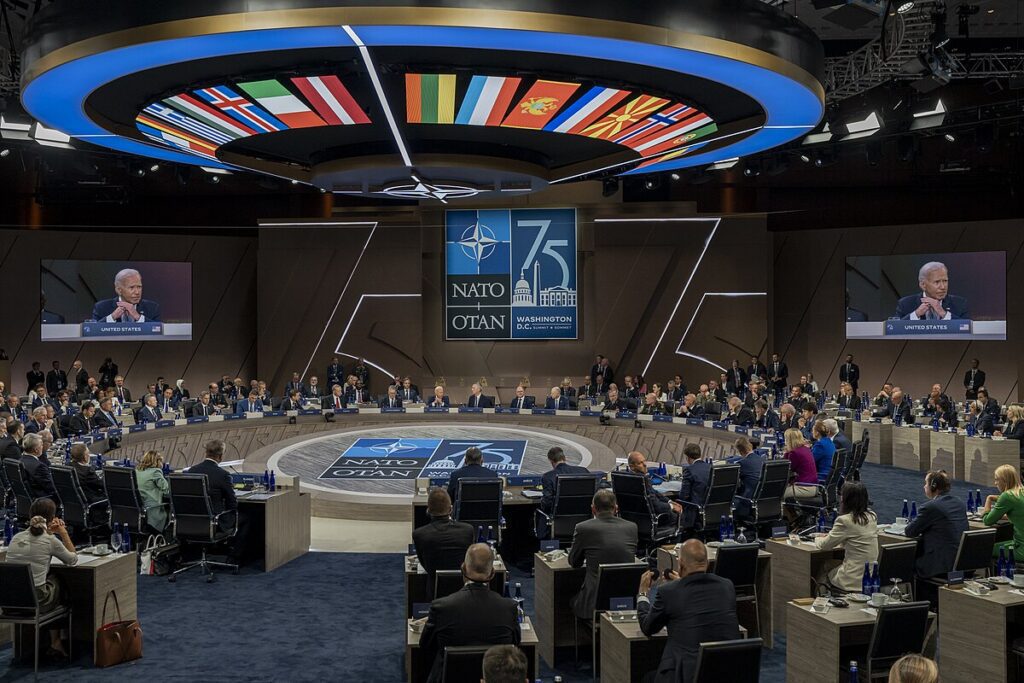Introduction
During the recent NATO summit in Washington, DC, tensions reached new heights as NATO officials leveled serious accusations against China, alleging that Beijing has been aiding Russia in its war effort in Ukraine. These allegations have brought to light the growing unease among Western nations regarding China’s strategic partnership with Russia amid the ongoing conflict in Eastern Europe.
NATO’s Allegations Against China
Support for Russia’s Defense Industry
NATO’s accusations focus on China’s support for Russia’s defense industry and the strategic partnerships that have allegedly bolstered Russia’s military capabilities in Ukraine. This marks a significant escalation in NATO’s stance against China, reflecting the alliance’s deepening concerns about Beijing’s expanding global influence and its potential impact on international security.
Escalating Rhetoric
The rhetoric used by NATO officials underscores the severity of their concerns. By pointing to China’s involvement in enhancing Russia’s military strength, NATO is signaling a broader geopolitical challenge that extends beyond the immediate conflict in Ukraine.

China’s Rejection of Accusations
Beijing’s Response
China quickly dismissed NATO’s accusations as unfounded, reaffirming its commitment to a policy of non-interference in global conflicts. Chinese officials have argued that NATO’s claims are politically motivated and lack concrete evidence, emphasizing that Beijing maintains a non-aligned stance.
Non-Interference Policy
Chinese representatives reiterated the country’s longstanding policy of non-interference, asserting that China does not take sides in international conflicts. China’s foreign policy is based on this approach, and Beijing has positioned itself as a neutral player in the war in Ukraine.
International Reactions
Support and Skepticism
The international community’s response to NATO’s accusations has been mixed. Some nations have voiced support for NATO’s concerns, stressing the importance of transparency and accountability in international security partnerships. These countries believe that any form of assistance to Russia amid its aggressive actions in Ukraine warrants scrutiny.
Calls for Diplomacy
Conversely, other countries have cautioned against further escalating tensions, advocating for diplomatic solutions to address the geopolitical disputes at play. They argue that heightened rhetoric and accusations could exacerbate the situation and complicate efforts to achieve peaceful resolutions.
Implications for Global Relations
NATO-China Relations
The accusations against China have significant implications for NATO-China relations. This development signals a potential shift in NATO’s strategic approach, indicating that the alliance is increasingly viewing China’s global actions as a direct concern to its security interests.
Global Geopolitical Dynamics
NATO’s allegations highlight the intricate interplay between major global powers and their influence on international security. The situation underscores the evolving nature of geopolitical alliances and rivalries, as well as the challenges faced by international organizations in responding to emerging threats.
Conclusion
NATO’s accusations against China during the recent summit have illuminated the heightened tensions and growing concerns over Beijing’s strategic alignment with Moscow amid the Ukraine conflict. These accusations have sparked significant international debate and highlighted the complexities of managing geopolitical rivalries in an interconnected world. As the situation continues to develop, the global community will be closely watching how these dynamics unfold and impact broader international relations.








